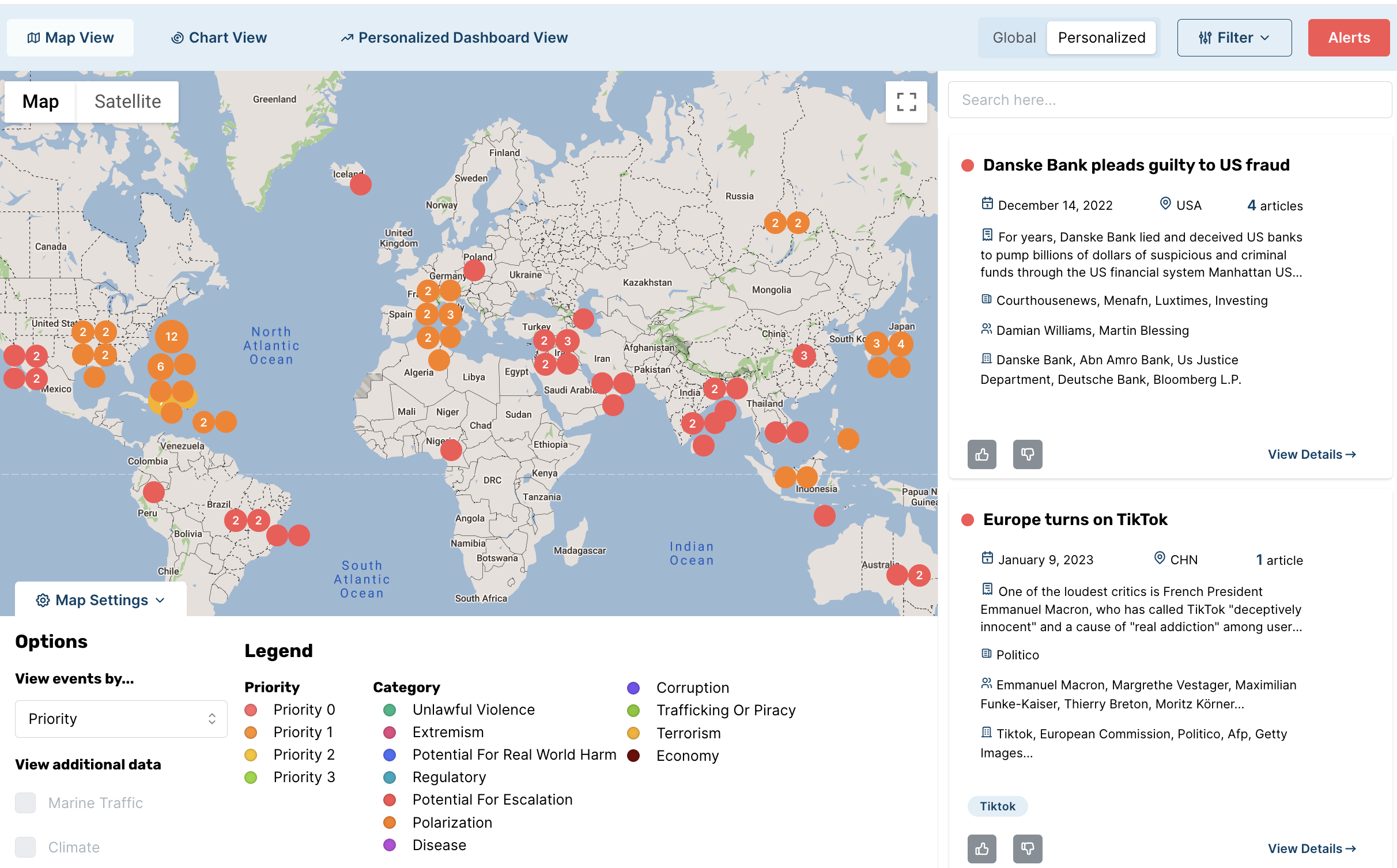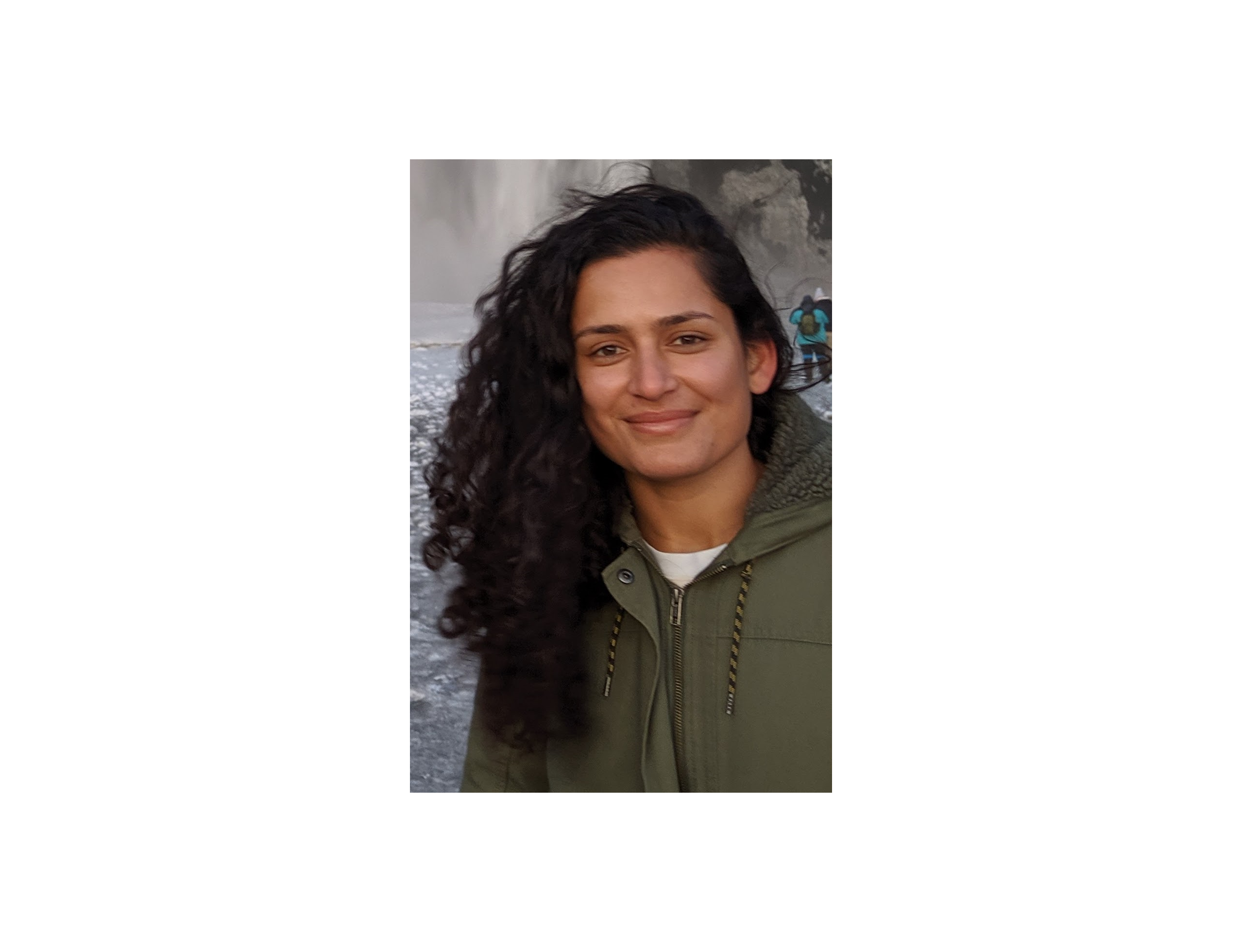Interested in starting your own entrepreneurial journey in business development but unsure what to expect? Then read up on our interview with Zara Perumal, Co-Founder of Overwatch Data, located in Boston, MA, USA.
What's your business, and who are your customers?
Overwatch Data is a data intelligence company that uses machine learning to monitor text sources, such as the news, social media, and dark web data, to surface specific information that matters to an organization's interest. For instance, financial services companies use us to detect fraud on the deep web or track which companies in their portfolio might be charged or accused of financial crime. We're able to do monitoring and analysis of live information at a much larger scale than a team of analysts could do manually. The tool is flexible so that it can serve a range of use cases across the supply chain, fraud, anti-abuse, and business intelligence teams within large enterprises.

Tell us about yourself
I'm a practical idealist. I've always been motivated to find the position where I feel like I have the best opportunity to make a positive impact on the world. For me, that means tackling problems with a mission worth pursuing, people who challenge you and push you to be better, and being a part of a team that needs me, not just someone like me. I always wanted to found a company and loved the huge leverage you have as a founder and the opportunity you as an individual have to make an impact. What made me hesitant was it felt completely random what made a startup likely to succeed, so I spent time reflecting and learning what I thought would make the right founding opportunity. For me, it came down to the impact of the problem, the fit of the solution to my skill set, and the founding team.
When I left my job to join Tad and Arjun, founding Overwatch, I couldn't say no to the opportunity we had to make a difference. The opportunity checked all of my boxes for what I thought would make a good startup and felt like a place where I could both affect change and grow.
First, the mission was meaningful to me. Our mission is to quiet the noise in the news and use the latest machine learning technology to show people why something may impact them, so they have time to mitigate harm and proactively adjust. We look at problems like how an increase in ethnic tensions or violence affects the supply chain for EV batteries, what trends in financial fraud are a risk to users of payments companies, or tracking disease spread near major transit pathways, so vaccine and treatment companies have time to react. In the last few years, the world has seen how conflicts like Russia/Ukraine, pandemics, and supply chain shortages have downstream effects on so many industries and people. Having the opportunity to contribute to mitigating those risks is a problem that I'm so passionate about; the long nights writing code feel like an opportunity, not drudgery.
Second, it was an opportunity to use large-scale machine learning and software decision systems to solve geopolitical and risk problems. It was everything I loved to work on, and I could use my ML and Cybersecurity background.
Third, I was lucky to find co-founders that align with me on core values but have incredibly different areas of expertise, backgrounds, and perspectives. This means we're each able to own our areas, but we also are able to learn from each other and push each other.
What's your biggest accomplishment as a business owner?
The team. I was worried about hiring and how we could convince incredibly talented people to take a risk on a very new startup. As we've grown, I'm so excited about the people we have been able to bring on. Each person brings a unique perspective to what we can build, from pure math to data visualization. Beyond technical skills, each person on our team is willing to take ownership of solving problems that are ambiguous and sometimes require learning new things from state of the art from machine learning papers, learning new libraries, or finding technology and partnerships we should leverage. I feel incredibly lucky to work with our Overwatch team and learn and grow every day.
What's one of the hardest things that comes with being a business owner?
It can feel lonely. Leaving big tech, there are always layers of managers, mentors, coffee chats, and best practices that give you a roadmap of what growth looks like for you. Being a founder, it's our responsibility to set the tone for the company and find our own path to continue to grow, learn, and stay ahead of the curve.
As a technical founder, I continuously look for peers, mentors, blogs, and papers that can push me to find technology or ways of approaching problems. It's been pretty exciting to see how un-alone I am and how many technologists or other founders are running into the same problems. Talking to other founders definitely has helped me feel less lonely and makes me feel less crazy for having the audacity to believe we have the opportunity to make a difference.
What are the top tips you'd give to anyone looking to start, run and grow a business today?
- Find your why: Founding a company is intentionally making your life hard. There will be high highs and low lows. Blocking off time before you run into those lows on why you are doing this gives you a foundation to fall back on when it gets to touch. I try to block out time to think about and write down how I hope to contribute to the world and how I hope to grow in this experience.
- Talk to users and find the hair on fire problem: YC's pressure on talking to (hundreds) of users and finding the problem that's so urgent for them to solve they are willing to take a half-baked solution blew my mind this summer. Leaving a big company, I had to unlearn processes that were meant to deploy for billions of users. Forcing myself over and over to think about how we take the leanest possible approach to get some value to users quickly, talk to them, and adjust has been incredibly valuable. It's so tempting as a founder to think you have some "magical ideas" that don't need to be tested with users. We're always pushing ourselves to stay humble, talk to users, and test these assumptions over and over and over.
- Protect your emotions and stay optimistic. I've found that a negative headspace helps me find risks in a solution, while a positive one allows more flexibility and creativity to find solutions. As a founder, we have to be so creative in the ways we solve problems, from using technology to finding people to ally with. Staying on top of hints of burnout, connections with co-founders, and tracking sleep have helped me see warning sides in advance and keep problem-solving from a creative headspace.
Where can people find you and your business?
Website: https://www.overwatchdata.io/
Facebook: https://www.facebook.com/zaraperumal
Instagram: https://www.instagram.com/zaraperumal/
Twitter: https://twitter.com/zaraperumal
LinkedIn: https://www.linkedin.com/in/zperumal/
If you like what you've read here and have your own story as a solo or small business entrepreneur that you'd like to share, then please answer these interview questions. We'd love to feature your journey on these pages.
Turn your craft into recurring revenue with Subkit. Start your subscription offering in minutes and supercharge it with growth levers. Get early access here.
